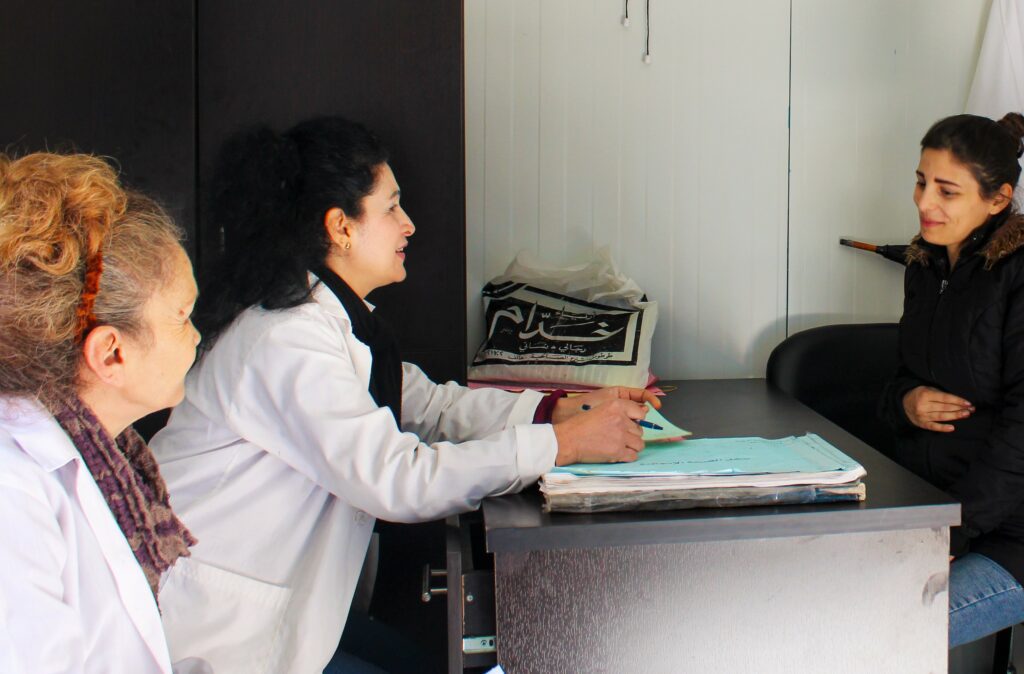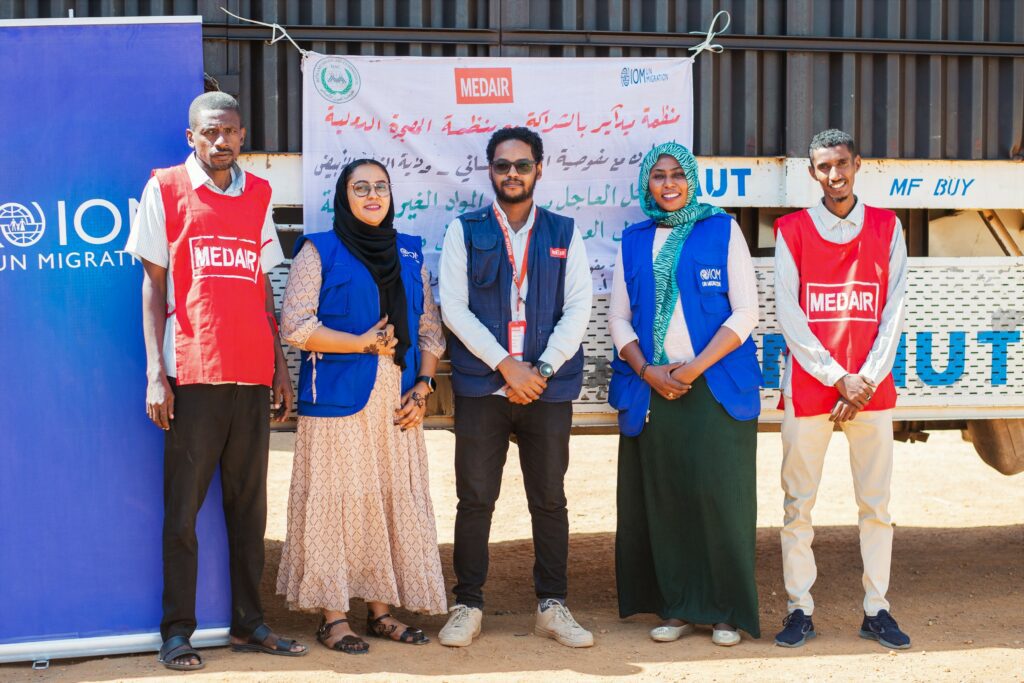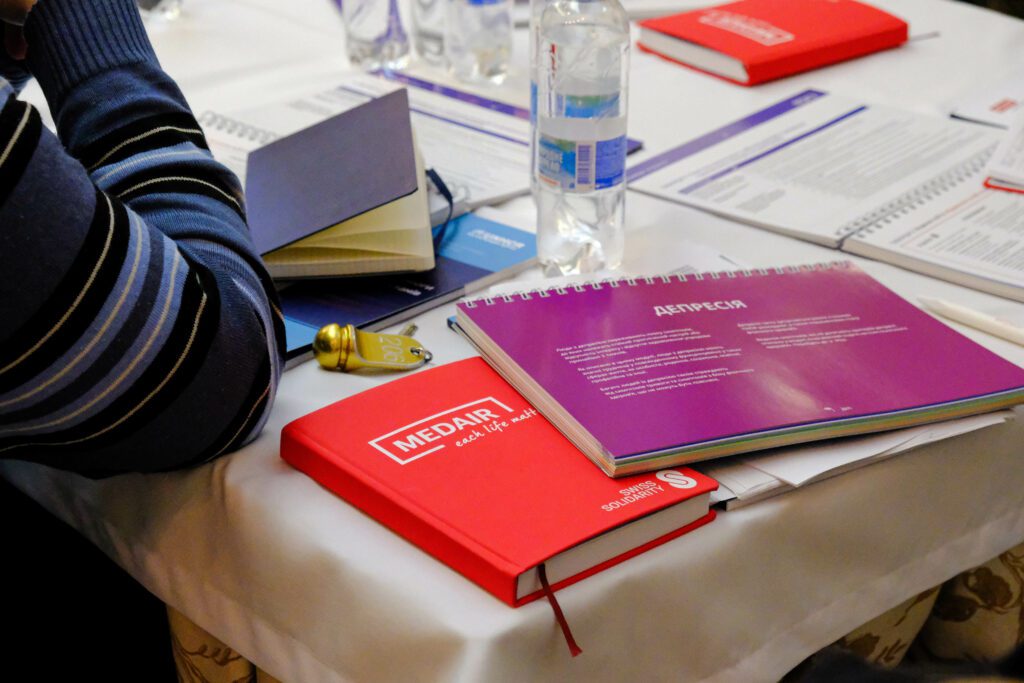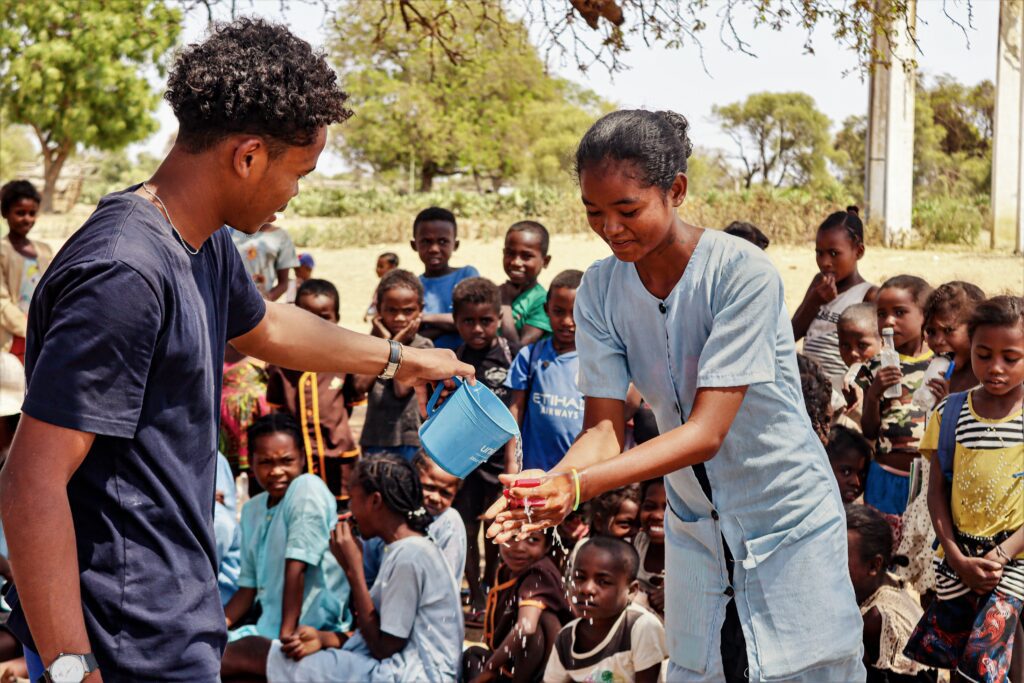Khadeja and her children came to Jordan as refugees from Syria in 2012. When they arrived, she and her husband faced significant challenges in paying rent for a home and finding schools for their children. She felt isolated and found it hard to integrate and communicate in a new environment. Khadeja’s son, Ahmad, was just 7 years old when they moved and he and his siblings were out of school for two years. “I witnessed a lot of challenges like school, and we didn’t have a home, or clothes to wear,” says Ahmad.
Leaving Syria and coming to Jordan as a refugee caused a lot of stress for Khadeja. When she lived in Syria, her husband had a stable job and her children were healthy. Now, however, her husband doesn’t have a fixed job, and she worries a lot about finances and her children’s education and health. Khadeja took part in Medair’s adult peer support groups and adolescent and caregiver groups with her son Ahmad. In the adult peer support group, she learned techniques, such as breathing and making time for herself to relieve stress. In the adolescent and caregiver groups, she learned how to foster a better relationship with her children. She now spends time with them speaking about what is going on in their lives. Khadeja explains, “Mental health and well-being is important because good mental health will affect your behaviour”. For Khadeja, having good mental health ensures that she can respond well to her family and to life’s challenges.
As with Khadeja, many people affected by humanitarian crises such as conflict, experience stress, anxiety, and other mental health challenges. This has a significant impact on their well-being and ability to respond to daily challenges. In the Middle East, a 2021 study by the No Lost Generation’s MHPSS Taskforce found that conflict and economic and political instability have led to an increased, notably high prevalence of mental health challenges among the population. For many refugees, basic needs such as food and shelter are a daily challenge, so mental health is often not a priority.

Medair MHPSS volunteers facilitate adolescent support group (part of the adolescent/caregiver sessions). In this session, adolescents discussed personal/family values, traditions, and family roots and how they can relate to these values.
Medair’s work in Jordan has primarily focused on access to health services. However, the country program now applies a more holistic lens to health to address a person’s well-being by integrating activities for mental health and psychosocial support (MHPSS). The Inter-Agency Standing Committee (IASC) defines MHPSS as “any type of local or outside support that aims to protect or promote psychosocial well-being and/or prevent or treat mental disorder”. MHPSS volunteers and the Medair team in Jordan work with adult peer support groups and adolescent/caregiver groups, giving refugees and vulnerable Jordanians a space to learn more about their mental health and to share their experiences with others. Adult peer groups meet to explore mental health topics such as stress management, managing thoughts, and coping with grief, loss, and depressed feelings. In adolescent and caregiver groups, Medair works with an adolescent and their caregiver, supporting the adolescent to develop social, emotional, and self-management skills. Medair works on strengthening the adolescent and caregiver relationship so they can communicate with one another and feel more connected.
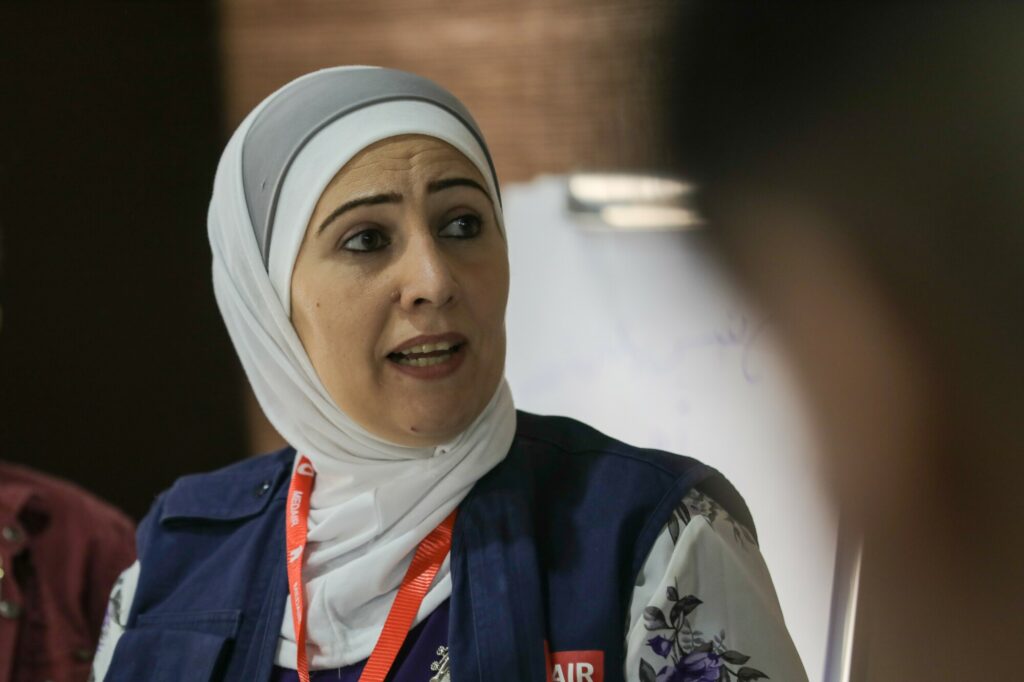
“As a Syrian refugee, I can relate to the challenges of displacement that many beneficiaries have experienced, and that affected their lives. I have been working in the psychosocial support field for 14 years and I have witnessed a positive impact while volunteering to facilitate psychosocial support sessions with Medair.”—Rowaa, Medair MHPSS volunteer.
Mental Health is a priority in Jordan because, as MHPSS Officer Hanadi explains, “Mental health is necessary. It is a gateway to positive well-being. We all need to understand ourselves and our feelings and how we can manage it in our life.” She explains that through the program, “We can help people to increase awareness about how it can impact the body and how they can confront stigma around physical, mental, and social health, to have a greater awareness about mental health. There is dynamic engagement between people sharing their experiences and feeling support.”
Medair’s MHPSS programming in Jordan is supported by the United States Government, the German Government, and private donors.
This content was produced with resources gathered by Medair field and headquarters staff. The views expressed herein are those solely of Medair and should not be taken, in any way, to reflect the official opinion of any other organization.


